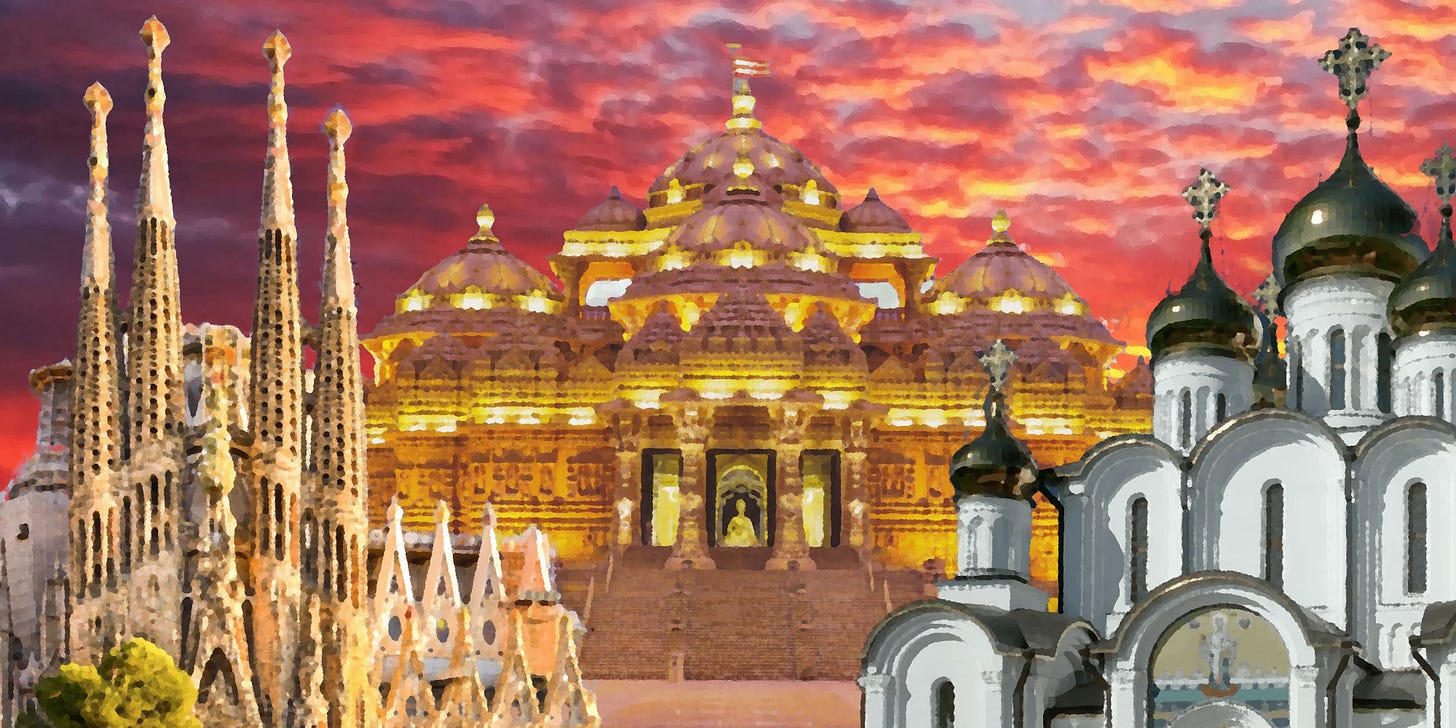Christian Bhakti
Letters to America: the kinship between Christianity and the Hindu traditions
“Those who are lacking in bhakti, lacking in faith, are ill qualified to interpret the scriptures.”
- Mahatma Gandhi
Dear US Christians,
The most fascinating aspect of this incoming presidency for me is the alliance between different religions it represents. Not long ago, the red team was dominated by hard-line Christian politics of a kind that I often felt was very far from the ministries of Jesus. Yet the new vice president is a Catholic and his wife is a Hindu - a situation unheard of in US politics! - and Hindus are occupying key positions in the new administration. Yet the Christians of the US know almost nothing about the Hindu traditions, nor about its potential kinship with their own faith.
I was raised a Christian but began to fall away from my faith after the death of my mother from cancer when I was twelve. My sense of God at the time was of a being in control of events, and therefore my mother’s death was difficult to accept. How different it might have been if my sense of God was of suffering with us, but such a theology is rare among protestants. Yet for all my years in the wilderness, I found my way back to my Christianity through my experiences of other religious paths. Indeed, I can say with great sincerity that were it not for my encounters with Hindu theology, I could never have returned to recognising my own Christian faith again.
In the Hindu traditions, there are three complementary paths that may be followed. First and foremost is the path of bhakti (puck-tea or buck-tea), devotional worship, which has strong kinship with the Christian traditions. There is also the path of knowledge (or wisdom), that pursues deeper insights into the nature of existence, and has kinship with the Buddhist traditions that grew out of it. Finally, the path of selfless good works - a path which bhakti inspires, but which may be pursued without bhakti. Do not be misled by those who labelled Hinduism a ‘polytheistic’ religion: the ‘gods’ of the Hindus are more akin to the angels of the Christians. Rather, behind everything for the Hindu lies the ultimate divine reality they call Brahman, and that Christians call God.
I have long felt that Christianity has been hampered by its obsession with Christian bhakti. This is not to besmirch Christian worship, which I cherish, but rather to suggest that because we do not recognise different paths for our faith (only different denominations), we have been led to a place where we cannot acknowledge the diversity of ways we can live as a Christian. Some who follow Christianity are not practitioners of Christian bhakti but are closer to a religious version of what US pro-wrestlers call kayfabe - treating stories as if they were real. This is offensive to those who pursue Christian bhakti, yet entire denominations (the Anglican church, for example) might be better understood as kayfabe Christians than bhakti Christians.
Yet there is a third path, an older path, which might be called the virtue Christians. This reflects the practices of Saint Augustine, Saint Catherine, and Saint Thomas Aquinas, and although I have only the dimmest appreciation for Orthodox Christianity, I suspect it also belongs among these practices. This path recognises the virtues of Jesus, the prophets, and the saints and strives to embody their examples. Just as with the relationship between the Hindu path of selfless good works and the path of Hindu bhakti, so Christian bhakti may inspire virtue. Yet so too with kayfabe Christians! So if the virtue path is holy to God, even kayfabe Christians deserve recognition as Christians doing God’s work.
We are far from being able to acknowledge and accept these diverse yet kindred paths. Christians for the most part avoid saying anything to offend the sensibilities of the practitioners of Christian bhakti, which indeed is why kayfabe Christianity has prospered - and also why so many in Europe and the US have drifted away from Christianity. While I doubt I shall live to see it, my heart yearns for a Christianity that recognises our kinship with our Hindu brothers and sisters, and allows for the practice of Christianity both with and without bhakti.
With unlimited love,
Chris.




Chris, Thanks for sharing your personal thoughts and insights. I am wondering if you have had the opportunity to travel in India and experience Hinduism in is native varied settings?
Bob
Karen Armstrong's "History of God" relates to historical paths
https://www.latimes.com/archives/la-xpm-1993-10-06-vw-42639-story.html
Many thanks!